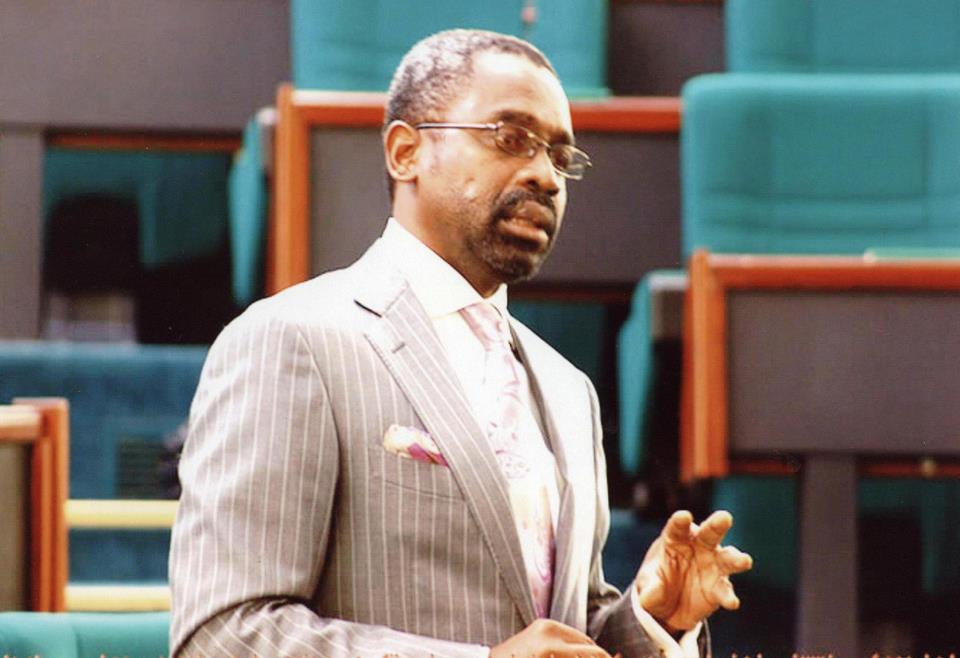The eighth National Assembly has been shrouded in political intrigues and controversies since its inception, the development describe by Association of concerned legislators and Nigerians at large as a threat to democracy. The threat became a reality when Saraki and Dogara decided to defect to the opposition Peoples Democratic Party (PDP) in 2018 even as member of the opposition attempted to impeach them.
The leadership tussle in the National Assembly has impacted negatively on governance as policies and programmes of the government are affected. The Association of Concerned Legislators cite the instance of President Buhari’s request to both the red and green chambers being delayed by the lawmakers and the foot-dragging on budget bills, among others. More than ever President Buhari looks forward to a mutual and effective working relationship with the ninth National Assembly. Such effective working relationship will improve the budgetary process and restore the country to the January-December fiscal cycle.
The upcoming ninth House of Representatives shows the All Progressives Congress (APC) has 211 seats, while the PDP trails with 111 seats. The race for the speakership has begun and all eyes are on Femi Gbajabiamila, majority leader of the House. Already some members have declared intention to vie for speaker of the House. Association of Compassionate Legislators doesn’t want the repeat of 2015 episode as there is need for the party to act decisively by zoning all principal positions in the House to appropriate geopolitical zones. This will reduce tension and confusion in the polity. However, the association proposes that the 2015 party arrangement should be maintained.
With our green chamber having 360 members it’s expected to be led by a person with considerable legislative experience and expertise to preside over its affairs and also weather the storm at any given time. If the postulation is anything to go by, Gbajabiamila can be entrusted with such a challenging responsibility of speaker of the House of Representatives, considering the fact that the nation’s democracy is in dire needs of reforms that will have far-reaching positive impact on Nigerians.
What makes Gbajabiamila different with current members that vying the speakership of the ninth assembly, considering his 16 years of legislative experience. Gbajabiamila assumed office in 2003 -2018, making him a four-time returnee to the green chamber. He was the deputy minority leader in the sixth assembly and emerged as the minority leader in the seventh assembly and eighth assembly. Aside his eloquence and tactical approach to issues in the House, Gbajabiamila maintains an enviable track record. Having sponsored a myriad of bills in the National Assembly, he is seen as one of the brilliant minds to have graced the chamber.
In 2011,Gbajabiamila was nominated for Officer of the Federal Republic (OFR). He surprised many Nigerians and received several acclaims when he turned down the award on the grounds that he did not deserve it and that the awards system in Nigeria was no longer achieving its original intent. Gbajabiamila put up an amendment to the National Honours Act of 1964 to make stringent guidelines for selection of National Award nominees.
This respected Lagos lawmaker played pivotal role in protecting the interest of the APC, positioning it as a strong force, especially in the eighth assembly where the party suffered internal crisis that led to gale of defection. While 37 members of the caucus dumped the party during plenary on July 2018, Gbajabiamila led the remaining members to reject the defection, while he hinted at taking “necessary steps” over the move which he described as illegal.
In 2014, Gbajabiamila as the leader of opposition in the House of Representatives led his colleagues into the merger that gave birth to the APC. Under Gbajabiamila’s leadership of the APC caucus in the House, the party increased its numbers, earning them the majority. On his re-election into the House of Representatives in 2015, Gbajabiamila presented himself to his colleagues as an aspirant for speaker of the House. He narrowly lost the election to the present Speaker Yakubu Dogara in an election which Gbajabiamila himself described as an act of God. Due to his wide acceptance within the party and members, he was overwhelmingly elected leader of the eighth House of Representatives on July 28, 2015. As in coming ninth assembly, APC maintains its majority control of the House, one cannot divorce Gbaja’s role in the transition of the party to its present domination.
There is need for APC leadership to prevent a repeat of the present situation. Even with APC’s overwhelming majority in the outgoing eighth Senate and House of Representatives, the National Assembly leadership was hijacked by renegade APC members and their opposition PDP collaborators. We all know the National Assembly is a strategic arm of government to achieve the Change Agenda for the country in the Next Level. At this point in time, the Association of Compassionate Legislators call on the party’s leadership to urgently set out mechanisms for the zoning/selection of preferred principal officers who will join the Buhari administration in implementing APC Change Agenda. Aside being president, Buhari is a respected father figure among party members and supporters. His direct involvement and views will be very important as the party works around the zoning/selection arrangement.
Hon Hafizu Ibrahim Kawu can be reached at [email protected]

